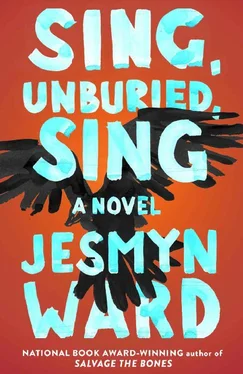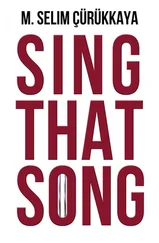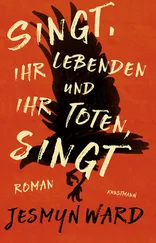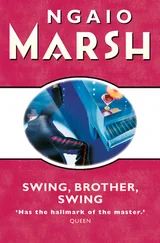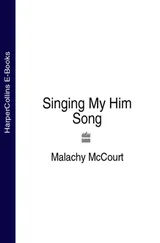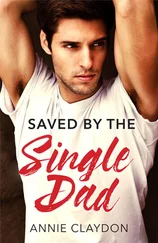“Riv,” he says.
Pop flicks his light, lets it die, and flicks it again.
“Riv,” Richie says again.
Pop pulls phlegm up his throat, spits off the porch. Looks down at his hands.
“It was quiet here without y’all,” Pop says. “Too quiet.” The lighter flame shows his quick smile, and then it’s gone. “I’m glad y’all back.”
“I didn’t want to go,” I say.
“I know,” Pop says.
I rub my wrists and look at Pop’s profile flare and fade in the light.
“Did you find it?” Pop asks.
Richie takes a step forward, and the look changes. Just a flicker. He glances between me and Pop and he frowns.
“The bag?” I say.
“Yeah,” Pop says.
I nod.
“Did it work? It’s a gris-gris bag.”
I shrug.
“I think so. We made it. Got stopped by the police, though. And Kayla was sick the whole time.”
Pop flicks the lighter, and the flame blazes for one half of a second, the fire bright and cold and orange, and then sparks out. Pop shakes the lighter by his ear and lights it again.
“Why can’t he see me?” Richie asks.
“It was the only way I could send a little of me with y’all. With Mam”—Pop clears his throat—“sick. And that being a place I can’t go back to. Parchman.”
Richie is inches away from Pop. I can’t even nod.
“See your face every day. Like the sun,” Richie says.
Pop pockets the lighter.
“You left me,” Richie says.
I slide closer to Pop. Richie reaches out a hand to touch Pop’s face and sweeps his fingers across his eyebrows. Pop sighs.
“You better watch out, boy. He used to look at me like that,” Richie says. His teeth are white in the black: tiny and sharp as a kitten’s. “And then he left me.”
I have to talk against the pockets of silence he creates whenever he speaks: the bugs shush for him with every word.
“Do she feel any better, Pop?”
Pop searches in his pocket for something, and then stops. “Sometimes, I forget. I forget I don’t smoke,” he says. He shakes his head in the darkness: I can hear the slide of his hair against the wall of the house he sits against. “She got worse, son,” Pop says.
“You was the only daddy I ever knew.” Richie’s voice was soft as a mewl. “I need to know why you left me.”
Richie is quiet. So is Pop. I slide down the wall and sit next to Pop on the porch. I want to lay my head on his shoulder, but I’m too old for that. It’s enough to feel his shoulder rub mine when Pop passes a hand over his face, when he begins to flip the lighter over and under his knuckles, like he does sometimes with knives. The trees murmur around us, nearly invisible in the black. When I hear Leonie come walking out Mam’s room, breathing as hard and deep as if she been running, pulling in her breaths like it hurt, I look up at the glittery sky and search for the constellations Pop taught me.
“The Unicorn,” I say as I identify it. Monoceros. “The Rabbit.” Lepus. “The Great Snake.” Hydra. “The Bull.” Taurus. I learned the proper names from a school library book. I know Leonie must be looking out at the porch, wondering what me and Pop are doing in the dark. “The Twins,” I say. Gemini. Leonie’s room door opens and shuts, and I see Michael babying Leonie when she was sick. I see the way Leonie didn’t do nothing when that cop put those handcuffs on me. Richie looks at me like he knows what I’m remembering, and then he sits across from us, curls over his knees, wraps his arms around his back, makes a sound like crying, and rubs what he can reach of his shoulder blades.
“My wounds were here. Right here. From Black Annie. And you healed them. But you left and now you won’t see me.”
I lay my head on Pop’s shoulder anyway. I don’t care. Pop breathes deeply and clears his throat like he wants to say something, but he doesn’t. But he doesn’t shrug me away.
“You forgot about the Lion,” Pop says. The trees sigh.
When we go inside to lay down, Richie still sits, no longer rubbing. Instead, he rocks back and forth, faintly, and the look on his face is broken. Pop shuts the door. I curl around Kayla on the sofa and try to lie still, to forget the broken boy on the porch long enough to drift to sleep. My spine, my ribs, my back: a wall.
* * *
“Jojo,” she says, and pats my cheeks, my nose. Pulls open my eyelids. I jump and wake and fall off the sofa, and Kayla laughs, bright and yellow and shiny as a puppy that just got the knack of running without tripping over her own legs. Happy, like that. My mouth tastes like I’ve been sucking on chalk and licking oyster shells, and my eyes feel grainy. Kayla claps her hands and says, “Eat-eat,” and it’s then I realize that I smell bacon, and I realize I ain’t smelled it ever since Mam got too sick to cook. I sling Kayla on my back and she clings. I think it’s Leonie, and I feel something in me soften for a minute, rethink all the bad I thought about her the night before, and something inside me say: But she do. She do . And then I step into the narrow kitchen, and it ain’t her; it’s Michael. He got a shirt on that look like it’s been washed and dried a size too small, the letters on it faded: it’s one of mine. An old one Mam bought me to wear one Easter. He look all wrong at the counter, the way he reflect too much of the morning light.
“Y’all hungry?” he asks.
“Naw,” I say.
“Yes,” Kayla lisps.
Michael frowns at us.
“Sit down,” he says.
I sit, and Kayla climbs up on my shoulder, straddles my neck, and beats my head like a drum.
Michael takes the pan off the gas, sets it to the side. He lets the fork he was turning the bacon with drip at his side, drip oil on the floor, as he turns to face us.
He crosses his arms, and the oil drips again. The bacon is still sizzling, and I wish he would take it out and drain it so me and Kayla can eat it hot.
“You remember that time we went fishing?”
I shrug, but the memory comes anyway, like someone pouring a bottle of water over my head. Just the boys , he’d told Leonie, and she looked at him like he’d jabbed her in her softest parts. And I thought he’d renege then, say I’m just joking , but he didn’t. It was late, but we went out to the pier anyway and cast lines. He called me son with his fingers, with the way he tied the sinkers and speared the bait. Laughed at me when I wouldn’t spear the worm, when I wouldn’t touch them. Michael waves his fork at me, and he knows I’m lying. He knows I remember.
“We going to have more of that now.”
He told me a story that night. As the fishermen gigged for flounder with their lights and their nets, he said: What you know about your uncle Given? And I told Michael that Mam had showed me his pictures, talked about him, told me he wasn’t here no more, that he was in another world, but hadn’t told me what that meant. I told Michael that because it was true, and because I wanted him to tell me what she meant. I was eight, then.
“That’s what me coming home means.”
Michael pokes the bacon. That night on the dock, he didn’t tell me how or why Uncle Given left. Instead, he told me about working out on the rig. How he liked working through the night so when the sun was rising, the ocean and the sky were one thing, and it felt like he was in a perfect egg. How the sharks were birds, like hawks, hunting the water. How they were drawn to the reef that grew up around the rig, how they struck under the pillars, white in the darkness, like a knife under dark skin. How blood followed them, too. How the dolphins would come after the sharks left, and how they would leap from the water if they knew anyone was watching, chattering. How he cried one day after the spill, when he heard about how all of them was dying off.
Читать дальше
